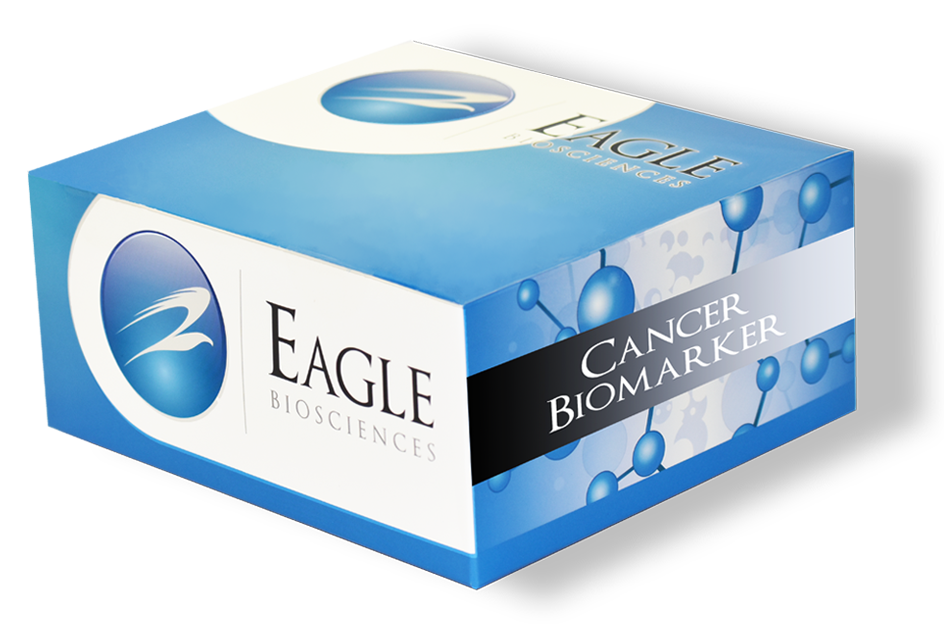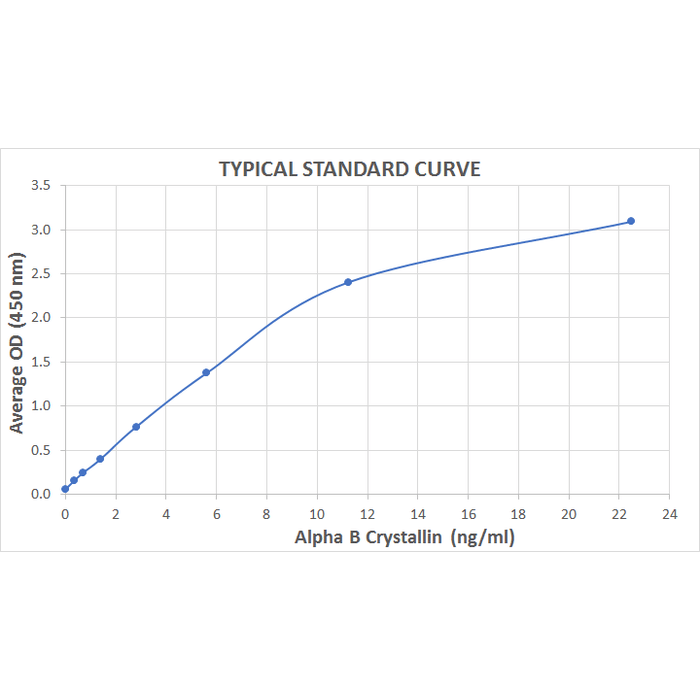Alpha B Crystallin ELISA
The Alpha B Crystallin ELISA is For Research Use Only
Sensitivity: 0.009 ng/ml
Dynamic Range: 0.352 – 22.5 ng/ml
Incubation Time: 30 minutes
Sample Type: Cell lysates, Serum, Tissue
Sample Size: 100 μL
Product manufactured in Canada by StressMarq.
Assay Background
The alpha-crystallins are major water-soluble lens structural proteins of the vertebrate eye that are related to the small heat shock protein family. The alpha-crystallins possess structural and functional similarities with HSP25 and HSP27. Mammalian lens cystallins are divided into alpha, beta and gamma families. alpha and beta families are further divided into acidic and basic groups (alpha-A and alpha-B respectively). In the lens, alpha-crystallin primarily functions to maintain proper refractive index, however it can also function as a molecular chaperone that binds to the denatured proteins, keeping them in solution and thereby maintaining the translucency of the lens. When cellular stress occurs, alpha-crystallin enters its’ phosphorylated state and may serve a structural control function and play a role in protein maintenance. In addition to their interaction with proteins, alpha-crystallins also interact with native molecules such as membrane proteins, Golgi matrix protein, structural proteins, nuclear proteins and DNA. Two other functions are an autokinase activity and participation in the intracellular architecture, and it has also been proven that both alpha-A and B prevent apoptosis by inhibiting caspases. Specifically, alpha-B crystallin is found in many cells and organs outside the lens, and alpha B is over expressed in several neurological disorders and in cell lines under stress conditions.



